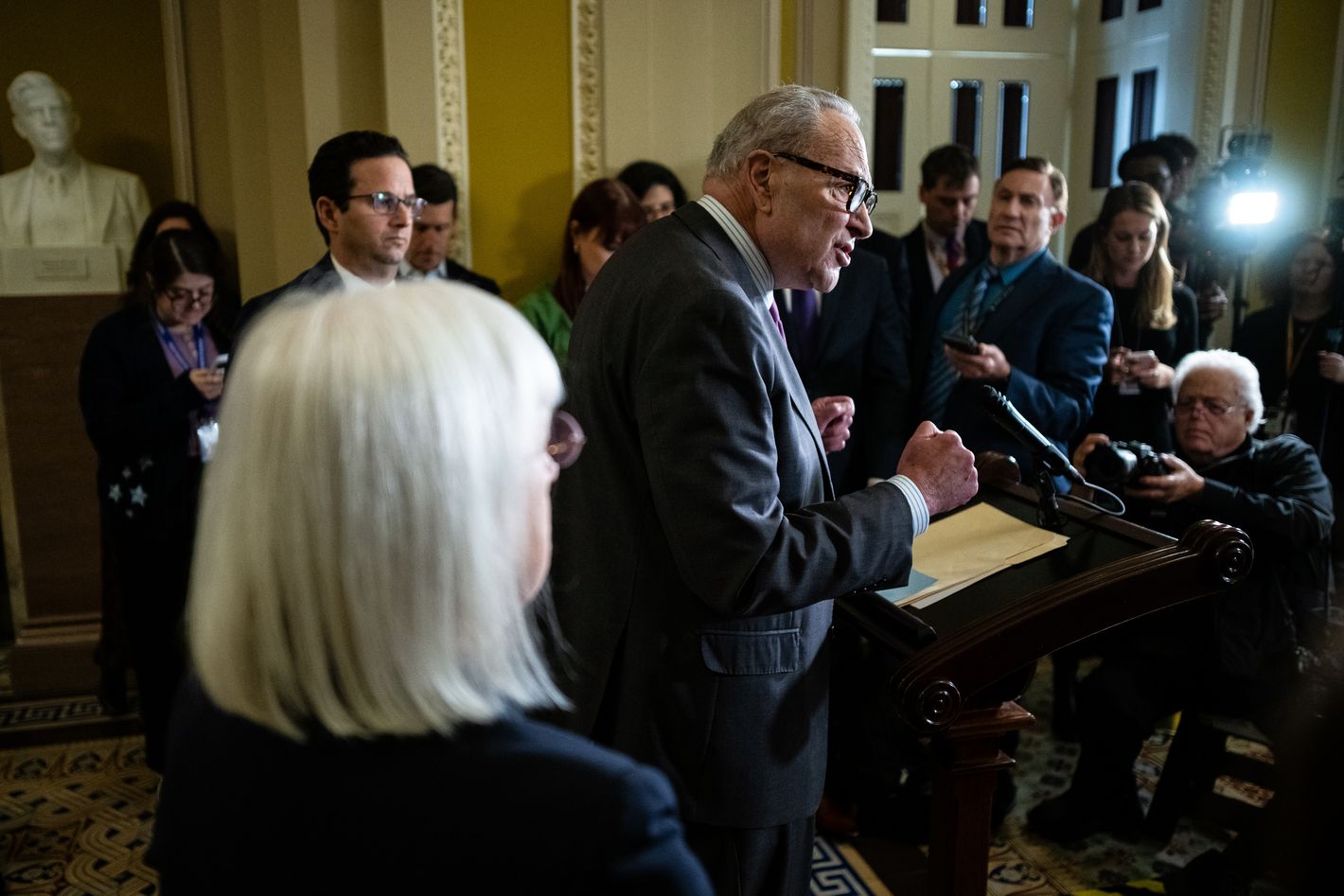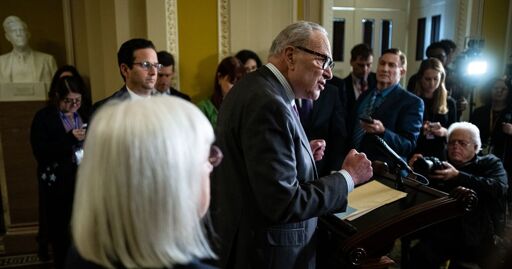
Photo: Graeme Sloan/Bloomberg/Getty Images
It is understandable that many Democrats are furious with the senators who voted to end the government shutdown. There is a feeling that, finally, Democrats had leverage over Donald Trump as SNAP benefits were cut and Americans largely blamed Republicans, not the Democratic Party, for the resulting chaos. The overwhelming electoral victories last week across the country only seemed to strengthen the Democratic position. Why cave now? Especially when the stated goal — saving Obamacare subsidies — won’t actually be achieved?
These questions highlight the ultimate Democratic dilemma and why their Senate leader, Chuck Schumer, who gave cover for enough of his colleagues to break with the caucus and vote to reopen the government, was doomed: The Democrats really had no feasible endgame. They do not control the government. Republicans have their trifecta, and Trump and his party can do what they want. That was the consequence of the 2024 election that Democrats will have to live with until at least 2027.
Would a longer shutdown have broken the Republicans on the health-insurance subsidies? Would all the canceled flights and vanishing food aid have brought them to the negotiating table? Maybe. But there was an incoherence to the overall Democratic messaging and strategy. No strong or compelling argument was ever made for the shutdown. It was either to save Obamacare or stop funding fascism or win some other concession from the GOP that was likely not forthcoming. Democrats can at least comfort themselves that the prolonged shutdown may have benefited them in Virginia where they seized a governing trifecta last week and voters, many of them reliant on the federal government.
One greater motivator for the Senate Democrats who voted to end the shutdown was the fear that Republicans could abolish the filibuster they were using to prevent the GOP from funding the government. Trump called for Senate Majority Leader John Thune to nuke it, and MAGA, following Trump’s lead, was beginning to make this the new litmus Republican test. For the nation, ending the filibuster would actually be healthy — bare majorities in the Senate, like the House, should be enough to pass legislation — but in the short term it would be deeply destructive for the Democrats. The GOP trifecta could, in theory, pass a national right-to-work law, a national abortion ban, and fully repeal the Voting Rights Act. For one year, at least, they would be truly unrestrained. Democrats, of course, would have that same power if they won congressional majorities and the White House. They could fix their disadvantage in the Senate — smaller, rural states now consistently voting Republican — by granting statehood to Washington, D.C., and Puerto Rico. They could create a health-care system that is far superior to Obamacare, which is a gift to the insurance companies and has only marginally controlled costs. Democracy, ultimately, should be about majority parties getting to put that majority to use.
As the government reopens and Obamacare teeters without subsidies, Democrats should articulate a greater vision for what they actually want to do even while out of power. Why should Americans want Democrats back in charge? What can they look forward to? The answer, for now, is to save the country from Trump’s ruinous policies, whether they be the cuts to the federal government and the social safety net or the ICE invasions. Like in the 2010s, Democrats can get far enough on promising to stop Trump. But they will need to be more than the anti-Trump party to build durable majorities in the future. They need policies and a governing vision for Americans to rally around. The battle over the government shutdown lacked that completely.
From Intelligencer - Daily News, Politics, Business, and Tech via this RSS feed

